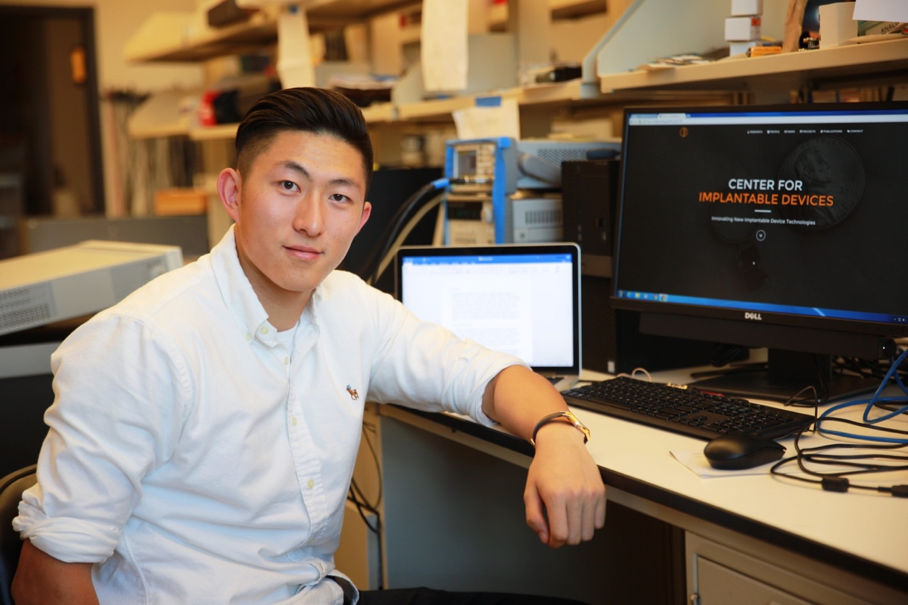Yumin Gao | Neuro Research
 What type of research have you been working on?
What type of research have you been working on?
During my junior year as an undergraduate in Biomedical Engineering, I worked in the laboratory of Dr. Irazoqui. This involved learning about the neural modulation of human inflammatory responses and fabricating implantable electrical stimulating devices. In the summer of 2016, the Weldon School offered me a fellowship opportunity funded by NIH to better identify real-world medical needs and connect biomedical research to clinical practice. For this fellowship, I collaborated with a neurosurgeon at the IU Neuroscience Center to create an Institutional Review Board (IRB) proposal that tested the concept of closed-loop electrical stimulation and its corresponding software with quantifiable controlling features on human subjects.
Why did you initially seek out a research position? How and why did you choose your current lab in particular?
As an undergraduate, research really provides an opportunity for students to go beyond classrooms and envision real-world clinical applications associated with the biomedical discipline. More importantly, it challenges you to develop the multifaceted qualities that are essential for scientists and engineers through communication, problem-solving, and collaboration. After taking BME 301, taught by Dr. Irazoqui, I was intrigued by the intertwined relationship between human physiology and bioelectricity, which became the initial motivation for me to start my research experience.
What have been your favorite parts working in this lab?
My favorite part about research was the opportunity I had to create an IRB proposal and to explore the significance of biomedical ethics. Biomedical engineering is human-centered. Human-subject research is fundamental to biomedical innovations and mandates the protection of rights and welfare of the subject, regardless of race, sex, language, religion, and socioeconomic status. Learning how to compose the proposal drove me to really consider the ethical aspects of medicine when making a decision in biomedical science research.
How has this experience influenced your future academic or career plans?
My undergraduate research experience allowed me to gain insight into the work required to develop and implement biomedical devices and their associated applications. Being familiar with the concepts of prototyping, experimental design, data collection, data analysis, and professional writing has refined my skills as a biomedical engineer. In particular, considering the fact that I am pursuing a career as a physician, the invaluable skill sets learned from research will smooth my transition into more sophisticated and complex medical research in medical schools.
What advice would you give to students who are interested in doing research with a professor?
If you have a particular area of research you are interested in, find professors who have similar interests and do not be afraid to reach out to them for research opportunities. Start early and carry through with passion and perseverance.
